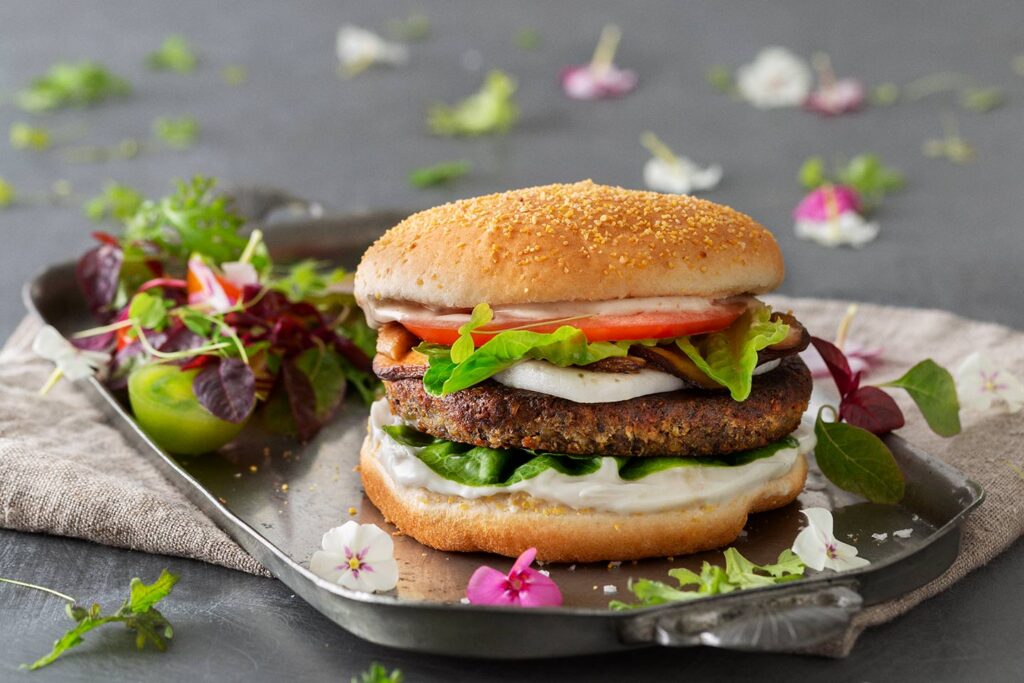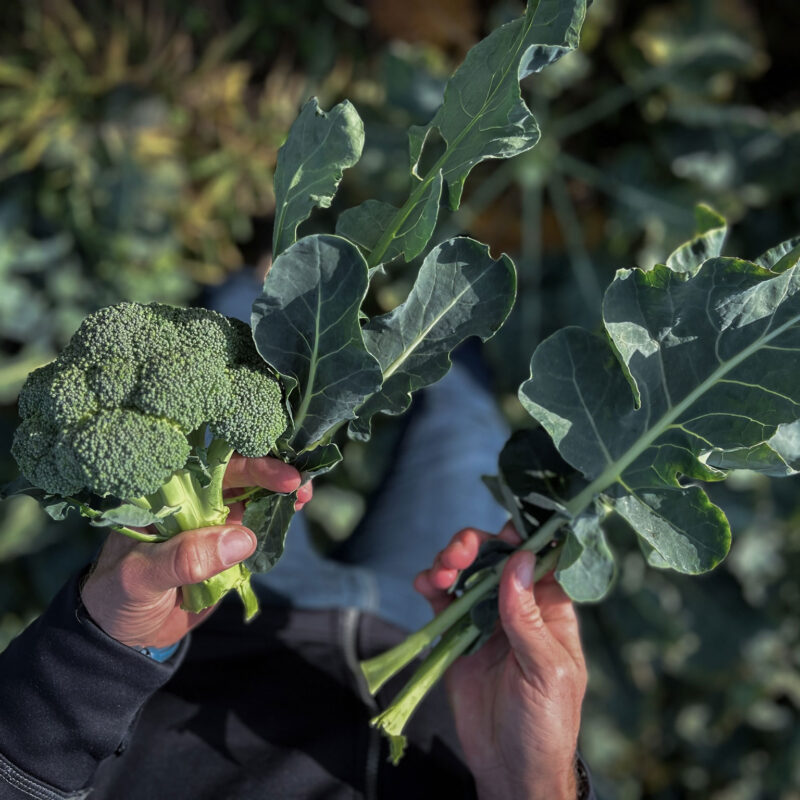Nordic Choice Hotels launch Swedish legume burger
2020.02.18
Nordic Choice Hotels now launch a legume burger entirely made from Swedish ingredients as a step towards a more sustainable plant-based diet. The base is Swedish Minced Legumes (Swe: Svensk Baljväxtfärs), a product created at Torsåker farm, Axfoundation’s development center for sustainable food. The hotel chain wants to make it easier for their guests to eat with a good conscience by offering sustainably produced food.

The legume burger is made from Swedish Minced Legumes (Swe: Svensk Baljväxtfärs), a product created at Torsåker farm.
“It feels fantastic that what began as a test cultivating sweet lupine at Torsåker farm now has become a part of Nordic Choice Hotels’ extensive sustainability effort. Broad collaborations have made it possible for Axfoundation to bring this product from the field, into the kitchen and on to the market. This will benefit Swedish farmers, biodiversity and the climate, and is also good from a health perspective. Powerful.” – Madeleine Linins Mörner, Program Director Future Food, Axfoundation
Swedish Minced Legumes is the base of the burger
All the ingredients in the legume burger such as legumes, mushrooms, oats and camelina seeds are grown in Sweden, contributing to sustainable Swedish farming. The base of the burger is Swedish Minced Legumes – a relatively new product in the market which consists of sweet lupines, broad beans, grey peas and leftovers from cold-pressed rapeseed production and a little salt. Nothing else. The mince is full of proteins with high-quality amino-acid profile and fibers which people generally don’t get enough of. Out of the burger’s fat content of 9.15 %, as much as 86 % is made up of unsaturated fat, which is good from a health perspective.
The legume burger uses only 1/8 of arable land compared to a meat burger
The legume burger has several advantages from both an environmental and a health perspective. The production of legumes in Sweden has substantially less climate impact than minced meat. One kilogram of minced meat releases 26 kg CO₂e while legumes on average release 0.7 kg CO₂e. Furthermore 1 kg cooked legumes release 1.3 % of emissions compared to beef mince since the legumes swell to double size when cooked. Also, much less arable land is needed to grow food directly for human consumption rather than producing forage to turn it into meat. Producing meat requires eight times more land. And – all the main ingredients in the legume mince come from flowering crops; sweet lupines, broad beans, grey peas and rapeseed, which benefit pollinators thus contributing to biodiversity.

























































